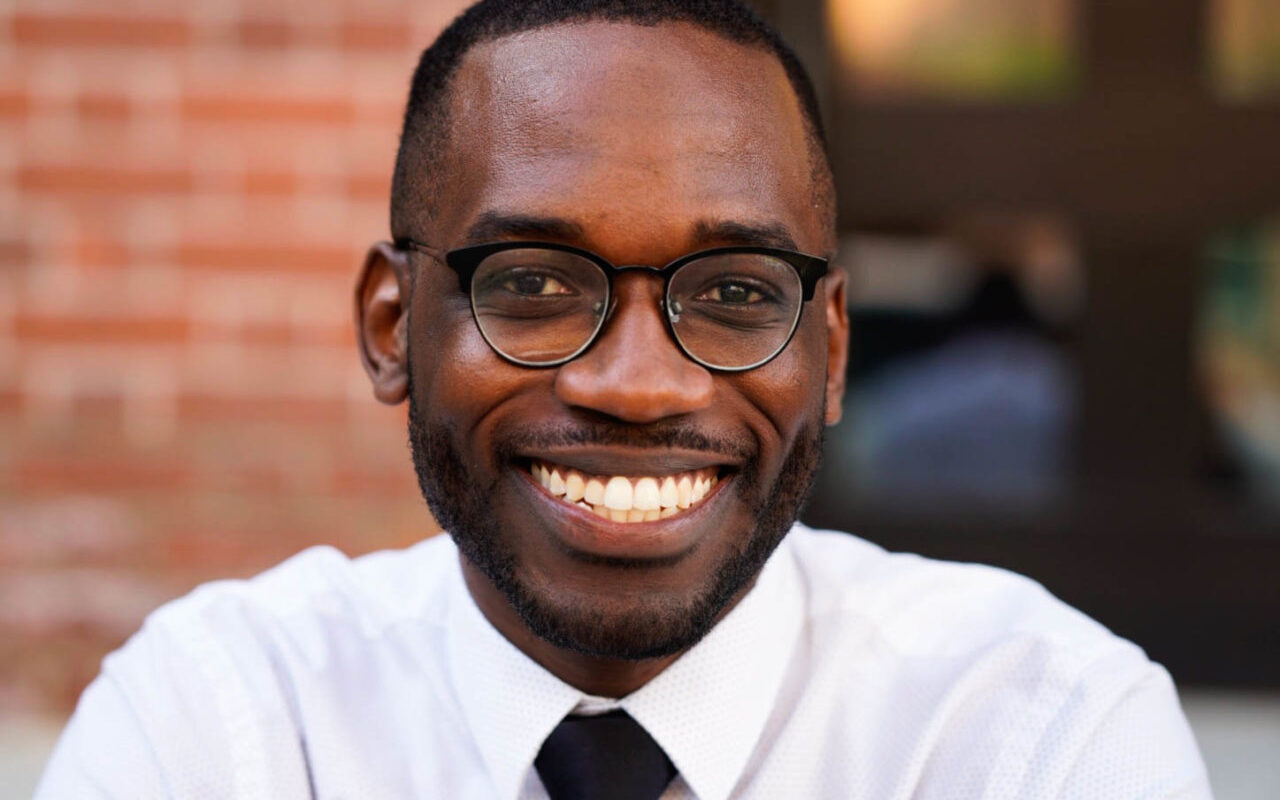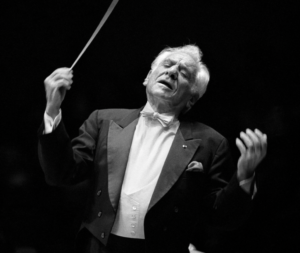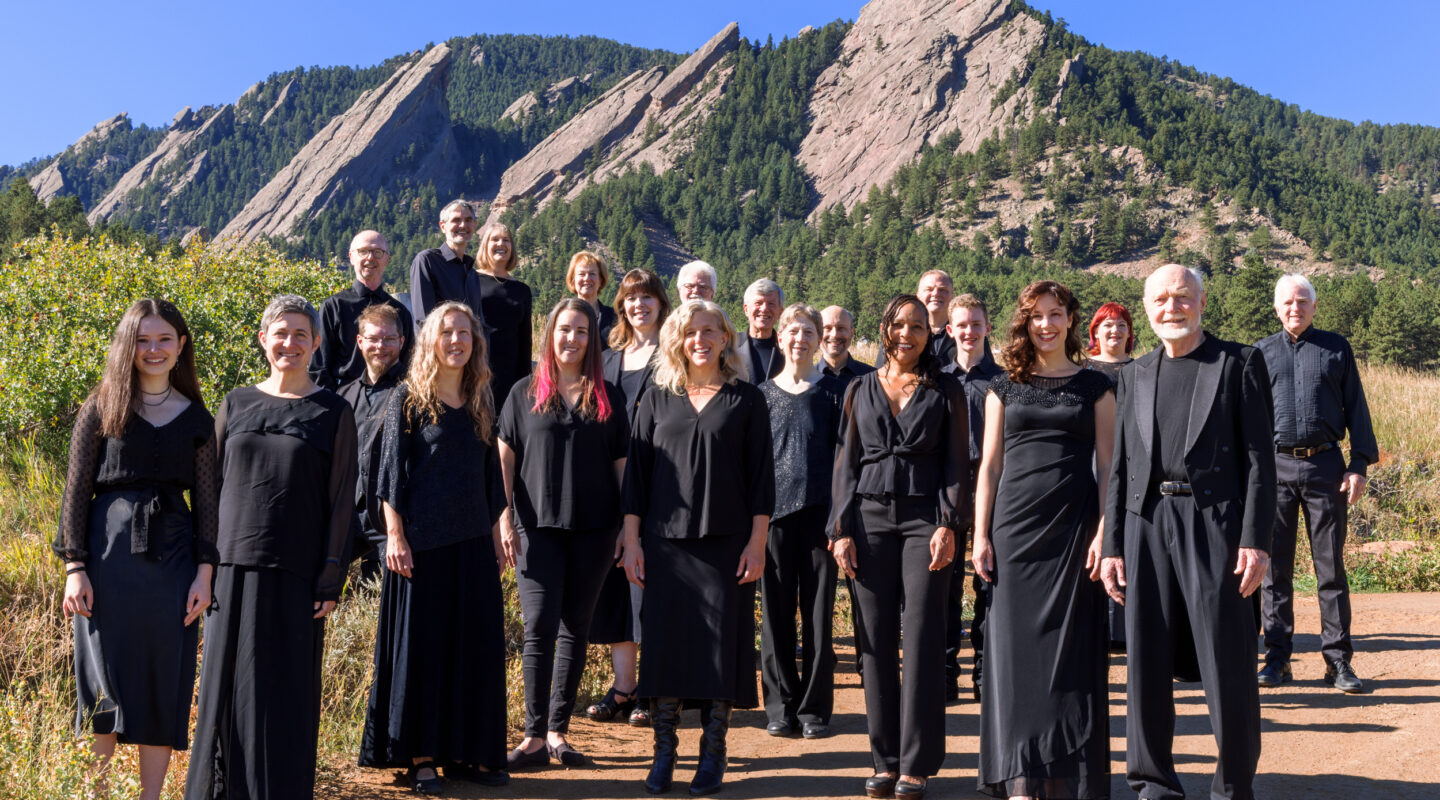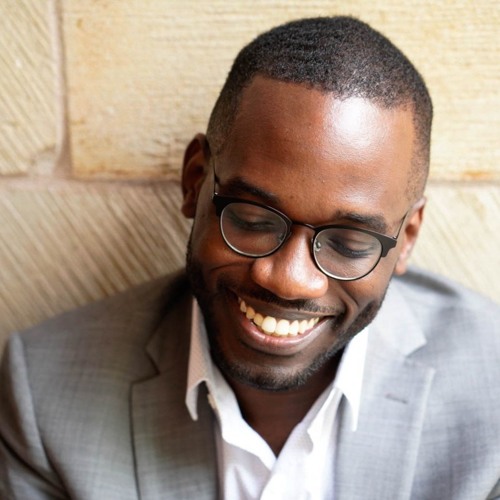Artistic Director Tom Morgan had the chance to catch up with composer Joel Thompson in anticipation of this week’s performances of his new piece in this world premiere with Ars Nova Singers.
Love Songs from Lonely Letters: A Conversation with Composer Joel Thompson

Tom Morgan: Can you tell us a little bit about the genesis of this piece, about how the commission came about? I know we went through a number of delays during the pandemic. But also I think you went through a bit of an evolution in terms of what the text was going to be.
Joel Thompson: I remember that John Rommereim (Blanche Johnson Professor of Music at Grinnell College) had reached out and had expressed interest in collaborating with his choirs and a number of others, including yours. I was in the middle of sort of the most intense part of my studies for my DMA at Yale. And I know that contributed to the delays, as well as some other premieres. But when we finally sat down to talk about text, I think my position has shifted a little bit. A lot of my music has been focusing on the things that occupy my energy, specifically related to my identity as a black man in this country, in this post-George Floyd moment. And I’ve wanted to do something that felt revolutionary in a way. And it was Dr. Rommereim who suggested “The Lonely Letters.” Here was Dr. Ashon Crawley, a black man, pondering ideas of religion and race, love and sexuality. I had already purchased the book on my own because I had been a fan of Dr. Crawley’s online musings, his work, and his philosophy around black Pentacostalism and the role of the Hammond B3 organ in black worship practice. When I started diving into his work, the way he talked about love was truly musical, especially since he himself is a musician. I think it just clicked from there and the music started to flow after that.

TM: So, these selections of the text that you have in this piece: do they appear in his work as an entity in itself, or did you put some of these together?
JT: Yes, I put some of them together. The book is a series of letters to an unknown entity. These words came from a particular sequence of letters that seems to hint towards the end of a relationship. The way that Ashon talks about love is simultaneously intimate and cosmic. Even though the text hints at a sort of mourning or grief at the end of a relationship, he realizes that love is somehow bigger than the context of this relationship or the context of this grief. Before I set it to music, I put the excerpts of these letters into a Google document and sent it to Ashon just to let him know how I was juxtaposing his words. He approved it before I started setting it. His musings on love were sort of difficult to set, to be honest. He says things like “love is the impossible extension of an ordered time.” It’s not exactly a way I’ve heard love described before! We have all of the romantic poets, talking about bright stars and all of that. But here’s this almost very scientific language, with ideas about quantum mechanics. And hinting towards the divine almost. It reminds me of that myth I think from Eastern religion, the myth of the elephant in the dark, with all of these people holding onto different parts of the elephant, not knowing that it’s an elephant. But describing it and saying, “I’m holding onto a tree trunk or I’m holding onto the tooth of a dragon or I’m holding onto a giant leaf” and they’re holding onto the ear or the tusk, but they’re describing it as best as they can. And they’re all wrong but they’re all right, at the same time…that myth of how humanity approaches the divine.
There’s a lot of correlations between that idea and how Ashon seems to be constantly approaching the idea of love and trying to find the right description for what he’s experiencing, what he’s feeling. One of my favorite parts of the piece is towards the end, where he says, “No, what I’m saying is this: maybe we are searching for our stars. Maybe love is that search.” Rather than trying to quantify what love is, he describes it as a process, a search. There’s so much about his work that resonates with me. And I’m so glad I got to work on this commission.
TM: I love the text too. I love how it universalizes things in a really quite unique way. As you say, you rarely see the words “impossible non-space time” in a love song. How do you see this piece evolving from your catalog of works and maybe in terms more of its harmonic language and where you’re going musically with it?
JT: That’s a good question. In retrospect, I think I’m looking at these things through rose-colored glasses. I remember struggling to set this text because I think I write from a place where I have to really feel it in my bones. I have to be truthful. I prioritize honesty. Frankly, I find it easier to be honest about my grief and pain, rather than being honest about matters of love and emotional connection.  I had to psychologically put myself in a place in which I could be as honest as possible when working with Dr. Crawley’s words. In a way, it was therapeutic, not in the sort of calming sense or feeling sensitive. But in that therapy is difficult; that it involves digging into the soul, and true examination of what one feels and hopes to be true.
I had to psychologically put myself in a place in which I could be as honest as possible when working with Dr. Crawley’s words. In a way, it was therapeutic, not in the sort of calming sense or feeling sensitive. But in that therapy is difficult; that it involves digging into the soul, and true examination of what one feels and hopes to be true.
TM: I can resonate with that, certainly in terms of this being a choral work. You’re asking people to express another layer of meaning and connection that you don’t have to worry about it in an instrumental work, right? For orchestra, you can just pour your own emotions into it that people can then interpret. But when you’re dealing with a text that ALSO is interpreted, there’s another layer of our experience connecting with it. And that’s a balancing act for a lot of composers, to find that authenticity within themselves. This is something that I absolutely love about the pieces, how you’ve integrated that with the music so beautifully.
Are there other choral works in your catalog that you really feel like you’d like other choirs to do or know about? Which of your works do you feel deserves wider exposure in the world?
JT: Well, one of my favorite pieces that I’ve written just got its live world premiere a week and a half ago. It’s called “A Prayer for Deliverance,” a setting of Psalm 13. I wrote it from December 2020 through January 2021. There’s a lot that was happening in the world going on in the piece. The prayer in that Psalm is quite heartfelt: “Give light to my eyes, or I will sleep in death… but I trust in your unfailing love.” It’s a journey from the spirit of joy, which is what I’ve been using my craft as a way to imagine and dream and move towards in my own life. It ends up with an “Amen” that gets me every time.
There’s another one that I wrote for my high school students (back when I used to teach high school). It’s called “Draw Us Near.” It’s a little hymn that’s also asking the divine for a little bit of hope. I mention those pieces because that’s sort of where I am right now. You know, it’s rough out here.
TM: Yeah, I understand, we’re all feeling it, even especially given the events in these last weeks. The question comes: what can we personally do to help us evolve as a society beyond what’s clearly not working?

JT: Yeah.
TM: And for us in the arts, it’s to make authentic music. It’s that Leonard Bernstein quote: “This will be our reply to violence:
to make music more intensely, more beautifully, more devotedly than ever before.”
JT: Right.
TM: I just really appreciate your sharing these insights with us. And we’re just so looking forward to performing this new work next week and having you here with us.
JT: Can’t wait to hear it! Thank you.

